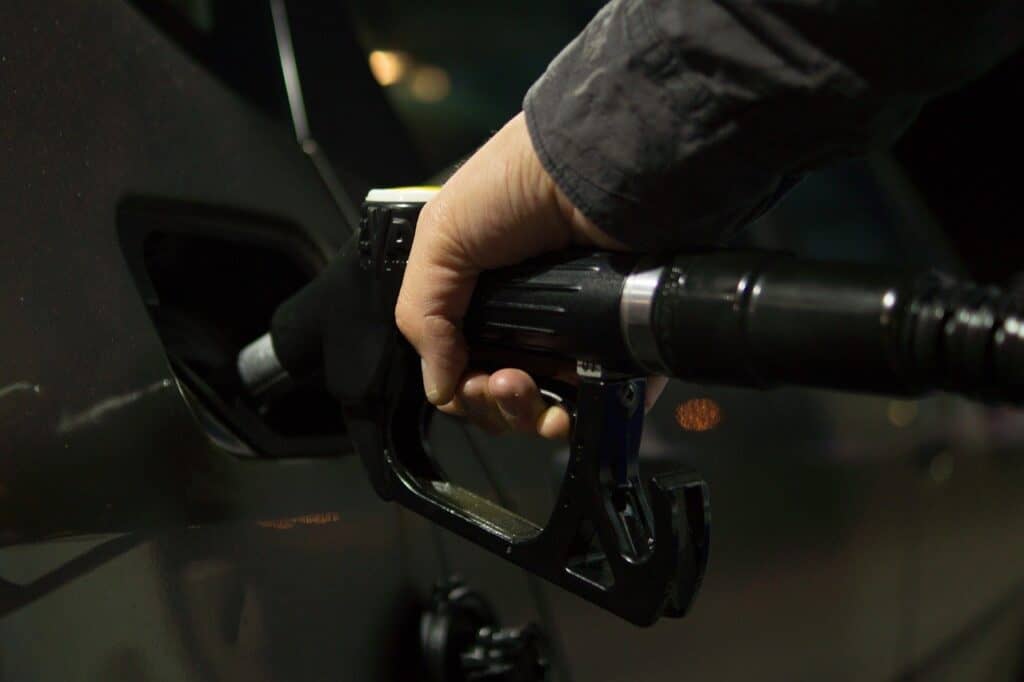Water is essential for almost every known life form in the universe. It makes up nearly 80% of our own bodies and we need to drink liters of it every day to stay healthy. We also regularly use it to extinguish fires when we’re under threat by fire. So, asking if water is flammable probably seems a little foolish but are we wrong? Is there a danger of fire lurking in every glass of water?
Water is not flammable and can’t catch on fire. This is because it is made of hydrogen, which has been fully oxidized and can’t react with oxygen any further. However, the hydrogen and oxygen can fuel and increase a fire when they are separated.
That doesn’t mean, however, that there are no fire risks from water and it’s very important to understand how water reacts, with other substances and fire itself, to keep those risks to a minimum. Lets take a look.
Your # 1 priority is keeping your family safe. As a firefighter, I recommend everyone has updated smoke detectors that don’t require battery changes, like these ones from Kidde, a fire extinguisher, like this one from Amerex, and a fire escape ladder if you have bedrooms above the first floor, I recommend this one from Hausse.
Also read: What Makes Something Flammable?
What Is Water?
Water is often called “dihydrogen monoxide” in scientific circles where everyone is pretending to be a bit smarter than they are.
But it’s an accurate description as a water molecule consists of two hydrogen atoms (dihydrogen, if you like) and an oxygen atom (mono-oxygen or monoxide).
Water makes up the largest part of the earth’s surface (71%) and in most lifeforms (excluding some fairly specialist forms of bacteria) water also makes up the dominant part of their bodies.
Everything from fish to trees to people depends on being able to drink water in order to stay alive.
Fortunately, it is odorless and tasteless, so drinking it is easy for anybody no matter what their preferred tastes are.
It is also used in nearly every industry, agriculture and even for entertainment (not just swimming, but diving, ice skating, water skiing, etc. too).
Also read: How Much Water Does A Fire Truck/Fire Engine Hold?
Is Water Flammable?

Given that there’s a lot of hydrogen in water, many people assume that there must be some flammability to water, after all hydrogen is a very flammable gas.
The trouble is that water is never flammable precisely because hydrogen is very flammable.
When hydrogen burns in oxygen, it oxidizes completely, there’s no spare hydrogen left laying around to react with something else.
So, a fire (which is burning something in oxygen) can’t burn water because water is the end product of a hydrogen fire, it can’t burn any more. Unless you use an oxidizer stronger than oxygen, such as fluorine.
Why?
Because water cannot burn, fires cannot burn from within water, there is no ready supply of oxygen in a bucket of water (though, of course, there is oxygen in the air above the water) and thus, the water extinguishes the fire.
Can You Ever Set Water On Fire?

You cannot set water on fire.
It is true, that you could heat water up enough so that it broke down into hydrogen and oxygen again.
And it is true, that the hydrogen produced would happily burn with oxygen.
But hydrogen is not water.
Water is dihydrogen monoxide (H2O) and that won’t burn.
However, it’s very important to realize that while water does not burn, you can start a fire on the top of water, for example a candle which floats in water could be lit or with water.
What About Boiling Water?
Boiling water doesn’t start fires.
Water boils at around 100 degrees Celsius or 212 degrees Fahrenheit.
There’s not much that has an auto-ignition point below this temperature (and as boiling water has no flame, only the heat from the water could cause a fire).
That doesn’t mean that fires don’t arise from boiling water though, they do and on a fairly regular basis.
If the equipment in which water is boiling is allowed to run dry, it can quickly heat up to more than 212 degrees to the point where it causes the auto-ignition of other substances.
Leaving a pot heating on the stove unattended for too long is a common cause of kitchen fires and it is a call we are called to often as firefighters.
So, if you’re going to boil water (except in a kettle with an automatic off switch for when the water has boiled), it’s a good idea to keep an eye on things.
After all, you don’t want to burn your house or workplace down, do you?
What Catches Fire With Water?
However, water can be used to start a fire…
If you cast your memory back to high school science classes, you will almost certainly have had a physics or chemistry lesson that saw your teacher drop sodium into water.
The sodium often burst into fire as it whizzes around the surface of the water, reacting with it to create sodium hydroxide (in solution) and hydrogen gas (that flammable gas).
You can see this here:
In certain circumstances, the hydrogen could build up enough that it caught fire too, but fortunately, in the school version of this, there’s not very much hydrogen produced using a tiny piece of sodium and it drifts away harmlessly.
There are quite a few other elements that can catch fire when put in water, cesium (which, fortunately, is so reactive that you are not likely to find it in pure form outside of a lab), lithium and even powdered magnesium (which won’t react as a solid in water).
This is a useful thing to know before you try and put out a fire in a chemical plant or a school laboratory, because it means the throwing water on a blaze could start another fire rather than just putting fires out.
Flammable Drinking Water?
Did we lie when we said water wasn’t flammable? No.
But flammable drinking water is a real thing, all the same.
That’s not because water burns, though.
If you cast your mind to recent history in America, you’re probably aware of the contamination of drinking water in Flint, Michigan.
This didn’t lead to flammable drinking water, but it did lead to poisoned drinking water.
Unfortunately, over in China, the pollution of drinking water has led to water coming out of the taps that can be burned!
In Pankin City in Liaoning Province, the local government is desperately trying to work out why people’s drinking water has become so contaminated by gas that it has become flammable?
For the last two years (or more) you’ve been able to set fire to water out of the tap.
The locals also report that if it doesn’t burn, it leaves an oily residue on their skin.
That means Pankin has flammable drinking water but it’s worth remembering that it’s not the water that’s burning but rather a pollutant in the water.
That the pollutant is an oil is important because oils are not miscible with water (they separate into a different liquid layer rather than mix with the water) and thus the oil burns on top of the water and not in it.
What Happens If You Put Water On Fire?
In most cases, if we add water to a fire, it extinguishes it.
This may require the absolute immersion of the burning item in water (so that the water makes a seal against oxygen being used by the fire) or it may be used to cool the fire and allow the heat to be leached out of it by the cold water.
Can Water Make A Fire Bigger?
However, it’s also important to realize that a fire can be made worse by the use of water and there are a few circumstances when this might be.
Firstly, if one of the substances that burn in water such as sodium or powdered magnesium is present, you might extinguish one blaze but start another.
Secondly, flammable liquid fires (Class B and K fires) can often be dispersed by water rather than extinguished, this is particularly true if the substance doesn’t mix easily with water.
Grease Fire
Technically, if you were to immerse a grease fire completely in water, then it would be extinguished due to lack of oxygen.
In practice, it is a very, very bad idea to try and extinguish a grease fire with water.
Watch as this restaurant employee tries to put out a fryer fire with water:
Oil and water do not mix.
When the water hits the grease, it creates little droplets of grease that are still burning, and which get sprayed everywhere.
Adding water to an oil fire is asking for a much bigger, much more dangerous blaze.
Instead use a dry chemical fire extinguisher that is rated for class B or K fires. Like this one or this one.
Electrical Fire
Water can absolutely put out an electric fire, but only at the risk of electrocuting yourself and potentially creating other fires.
If you cannot remove the source of the electricity from a fire (for example, by switching off the circuit breaker for the area before tackling it) you should never use water on an electrical fire.
Instead, you should opt for carbon dioxide or powder extinguishers. Like this one.
Related Articles
Is Oxygen (O2) Flammable? Actually No…

